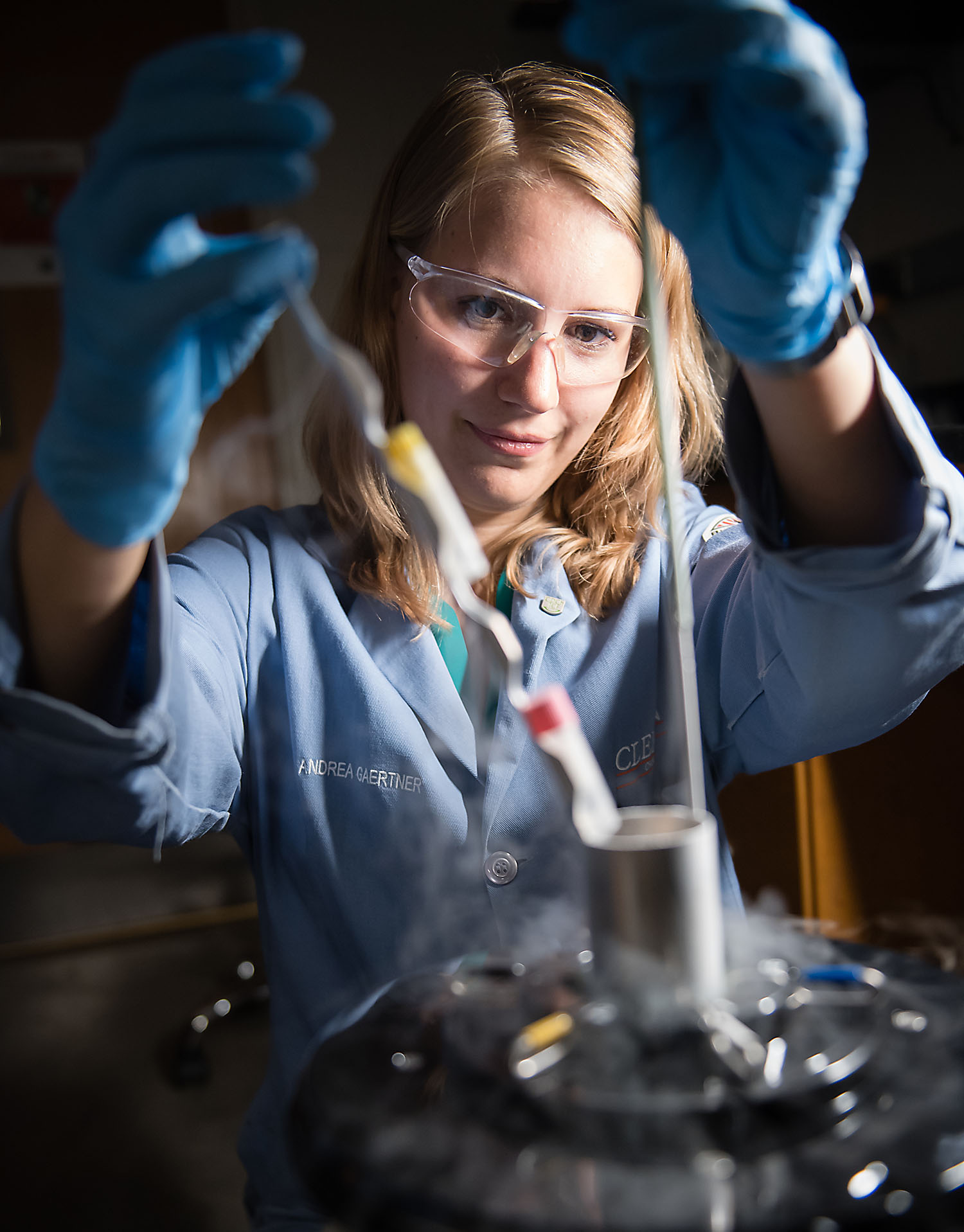Master’s Program Overview
Clemson University is a public research institution located in the foothills of the Appalachian Mountains in Upstate South Carolina. Clemson is a comprehensive research university with a traditional emphasis on science and engineering. The Department of Chemistry is a midsize graduate program with 23 research faculty and approximately 100 graduate students. The department has faculty members with research efforts in many interdisciplinary areas of chemistry, with strengths in advanced materials, chemical biology, computational chemistry, nanoscale materials and solid-state chemistry.
The Master of Science degree in chemistry provides a course-intensive degree with the option to perform research focused on analytical, inorganic, organic and physical chemistry. Research areas also include bio-organic chemistry, polymer chemistry, materials chemistry, chemical physics and more. Students may earn the chemistryMaster of Science degree through graduate coursework (the non-thesis option) or a combination of graduate coursework and research, including a published thesis.
This is typically considered a great opportunity for professional advancement, especially for those students who are currently employed in industry, education, government or the military.
M.S. Degree Requirements
 The Master in Science in chemistry is awarded on the basis of coursework completed, completion of examinations and the research performed (for the thesis option).
The Master in Science in chemistry is awarded on the basis of coursework completed, completion of examinations and the research performed (for the thesis option).
The final basis for granting this degree is your overall grasp of the subject matter, competence in conducting supervised research (for the thesis option) and your ability to express yourself adequately and professionally both orally and in writing. Ultimately, only a student’s advisory committee can certify that a student has earned this degree. This degree requires a minimum of 30 credits beyond the bachelor’s degree.
- Students pursuing a M.S. degree (thesis option) must complete a minimum of 24 hours of graduate coursework and six hours of master’s thesis research.
- Students pursuing a M.S. degree (non-thesis option) must complete a minimum of 30 hours of graduate coursework. At least half of the total graduate coursework credit hours required to satisfy the M.S. program must be in 8000-level courses or above, and at least 12 credit hours must be in the major field of study.
Your advisory committee will aid you in developing an individualized curriculum — to be outlined in the GS2 Plan of Study — which meets program requirements and provides appropriate training to meet your goals. For more information see the Program Handbook as well as the “Graduate School Policies & Procedures” handbook. Program committees may make substitutions to the required/core coursework pending approval at the program, department and college level. The graduate handbook you receive when you first begin your degree program, your GS2 Plan of Study, along with the “Graduate School Policies & Procedures” handbook current as to that same year are your official guides to this program and may be slightly different than what appears in the current catalog.
